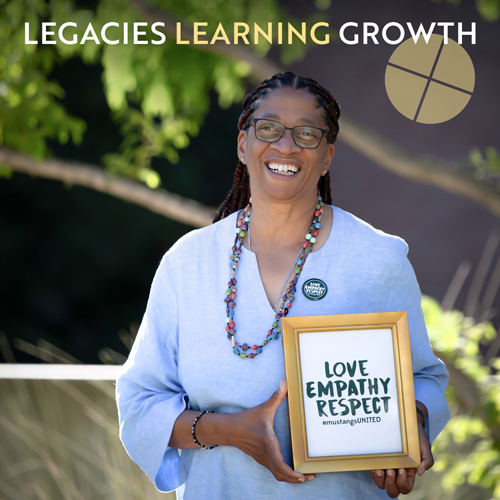Performance Psychology: Mind and Matter
 Illustration by Getty Images
Illustration by Getty Images
KINESIOLOGY RESEARCH STUDENTS AND FACULTY USE DEBRIEFING TO HELP CLIENTS MAXIMIZE PHYSICAL PERFORMANCE IN SPORTS AND OTHER ACTIVITIES
APRIL 2025
by Angelina Benyamin Rodriguez
As strength and conditioning helps athletes train their bodies, sport psychology increasingly is being used to maximize performance, build confidence and develop mental fortitude.
Teamwork exercises and post-activity conversations, known as debriefings, are common in the field. Sessions with coaches, and sport, exercise, and performance psychology (SEPP) professionals typically include questions about what went well and areas for improvement, how to cope and recover from injuries and goal setting, among other practices, to help an athlete make positive adjustments ahead of a future competition.
 “It’s really a learning tool that we use to help athletes understand and process the experience they’ve had and say, ‘How can I take what I’ve learned in this setting and then apply it to my performance setting?” said Stefanee Maurice, an associate professor in kinesiology and public health.
“It’s really a learning tool that we use to help athletes understand and process the experience they’ve had and say, ‘How can I take what I’ve learned in this setting and then apply it to my performance setting?” said Stefanee Maurice, an associate professor in kinesiology and public health.
Debriefing is widely used, but proper training in kinesiology education often is lacking. Maurice’s research, assisted by undergraduate students, has sought to gauge the effectiveness and importance of debriefings, and how trainings can be improved.
A fun bonding activity may help a team draw closer, for example, but Maurice and other sport psychology practitioners want to understand why and how it leads to improvement.
Maurice and her student research team collaborated with Georgia Southern University to publish two papers on debriefing.
In “Bridging the Gap and Finding Purpose: An Approach for Debriefing in Applied Sport, Exercise and Performance Psychology,” researchers identified the client, the consultant and the collaboration between the two as three separate areas of focus in research-based assessment, creating a “3Cs" approach to debriefing.
 The authors surveyed 143 SEPP professionals and found many respondents “expressed concern and frustration with their limited training and education on debriefing” and wished they had received a more formal education on the topic.
The authors surveyed 143 SEPP professionals and found many respondents “expressed concern and frustration with their limited training and education on debriefing” and wished they had received a more formal education on the topic.
Helping athletes identify where problematic behavior, thinking and other performance detriments occur comes with self-reflection about how to recognize areas of growth and address them.
“The No. 1 goal with the work that we do is to help athletes achieve self-regulation and build up that toughness to deal with something when it goes wrong, or address it before it goes wrong,” Maurice said. “We help build the tools that maybe someone has within, but perhaps they need to be dusted off or strengthened.”
For the second article, “It’s Absolutely Essential: Sport and Performance Psychology Practitioners’ Perspectives on Training, Use, and Importance of Debriefing in Applied Work,” the research team surveyed 143 sport psychology practitioners in a first phase and then interviewed 13 respondents further, looking into the effectiveness of debriefing.
They asked participants questions, including how they implement methods in sessions and how they measure effectiveness. Over half rated the practice as extremely important, 46% said they use it every session, and 41% said they use it often. But to help address gaps, more professional development training, textbook chapters and professional development opportunities are needed, the study concluded.
Article co-author Joy He Tu (Kinesiology, ’22), a past Frost Research Fellow and currently a physical therapy graduate student at the University of Southern California, helps create a comfortable and professional setting for clients.
“A lot of research in physical therapy is quantitative,” Tu said. “But I think beyond that, we also have to look at the psychology behind how someone thinks and feels. What you can do for them as a clinician is just to talk to them, to understand where they’re at currently, in their current state of mind, and try to navigate through that together.”
Journal article coauthor Holt Crawford (Psychology, ’22) is planning to pursue a master’s degree in sport psychology.
“The research and time with Dr. Maurice were instrumental in figuring out the career path that I wanted to take and finding clarity in what the field looked like,” Crawford said.
Not every kinesiology student will become a sport psychology practitioner, but debriefing skills can still be applied.
Salena Garcia (Kinesiology, ’19), who co-authored the article defining the “3Cs,” is a former student-athlete and currently is a personal trainer who uses insights from the study with client interactions.
“People will say they can’t do something, but it’s not necessarily that they can’t do something, but it’s something deeper, often an injury or something they’re going through,” Garcia said. “The goal is being able to connect and give a more open, comfortable space for that person to be able to just open up and vent if they need to and get to what they’re actually feeling.”
Maurice incorporates aspects of debriefing into all her classes by modeling and leading reflective conversations. In KINE 366 Applied Sport Psychology, she asks students to create a team-building exercise that they’ve never done before. Students split off into groups and lead their class in unique team exercises. Afterward, the group leading the activity debriefs about how they planned and executed the activity.
Maurice wants students to connect the dots between class material and their personal lives. Whether they are stressed about a job interview or a big exam, her hope is for them to remember and practice their debriefing skills.
Research supported by: the William and Linda Frost Fund.
Read this group's research publications:





